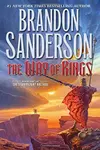
Andrew's Books by Status
69 Books
See allAndrew's Most Popular Reviews
A short little story, but I only read a chapter or two a night (and skipped some nights), so it took a while to get through. This little vampiric story is older than Dracula, and more sexual/erotic in its content (in this way, it has more in common with likely earlier drafts of Stoker's novel, which may exist in various foreign versions of Dracula). Overall, I liked this a lot. It's moody and shocking for its day, and I'm certain any mother or father who read this would have been appalled by it, which is a good mark of horror fiction. The vampire is a predator, obviously, and usually the vampire is coded as a sexual predator (or lover, in certain instances, if not abuser), but the vampire is almost always male. Count Dracula is fearsome because he plays into some Victorian notion of women and young girls falling prey to lecherous but suave men; but here, the main character, a young girl, falls prey to a female vampire, thus turning the whole trope on its head in an unexpected way. As a horror novel making use of mythological motifs in a specific cultural context, Carmilla asks if anyone is safe, since anyone can be a predator; furthermore, is the book about a father's attempt to suppress his daughter's developing homosexuality?
So the book is certainly interesting in those ways. Where I think it fails is in a few plot points that do not make any sense at all. The book leaves some things open-ended, but not in a mysterious way, only a frustrating way. For instance, who was Carmilla's mother? Another pet peeve of mine is the introduction of heroic characters in the last act, who sweep in to solve the narrative problems. Very, very annoying.
I think the profound effect Lewis has had on my mind is keenly comparable to the way Lewis viewed George MacDonald. I'm certain that Lewis and I exist on different wavelengths on many things, and yet each time I read one of his works I find myself moved and hoping he's right. What if Hell really is only closed from the inside? Lewis is quick to make clear that this book is one of his “supposeales,” and even clearer that he intends this book wholly as a work of fiction, not one of those “I saw heaven/hell” books; in fact, Lewis has a short but funny exchange with author George MacDonald about people who have “visions” of heaven/hell and then write books about their “experience.” So, to sum it all up, I don't really buy Lewis's viewpoint (or George MacDonald's, for that matter), but I find so much of it beautiful.
After all, as Lewis's fictional George MacDonald explains, trying to understand eternity while living within time is like looking through the wrong end of a telescope.
This book has long been a favorite of mine. I've read it twice in print, listened to it once as an audiobook, and just finished it again, this time on my Kindle. This is a book that I've continued to come back to because the world is super interesting and the characters are wonderful. Has some of the content become a bit dated? Definitely. But the storytelling brilliance contained between the front and back covers of this book is mesmerizing.

















